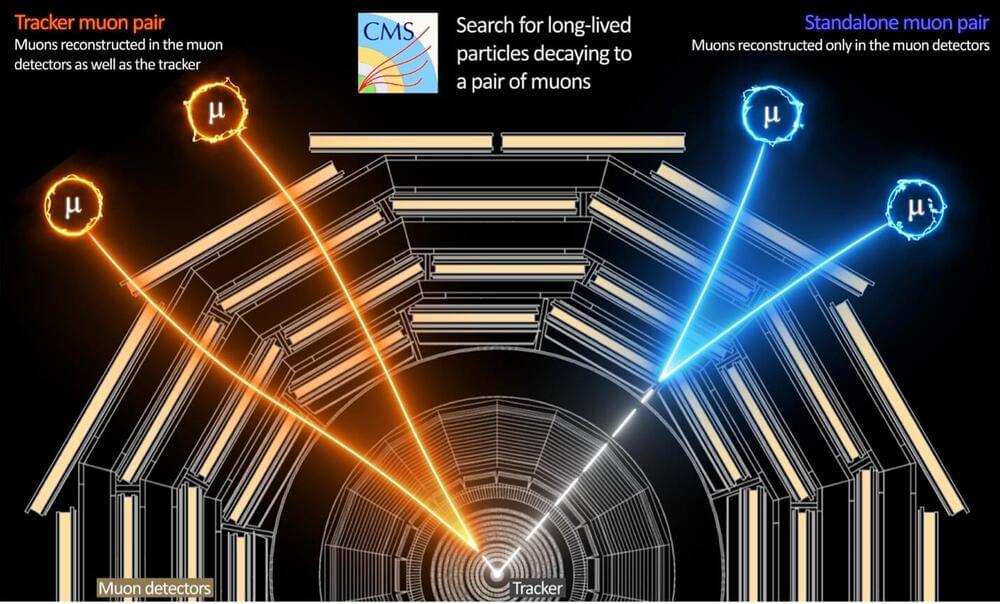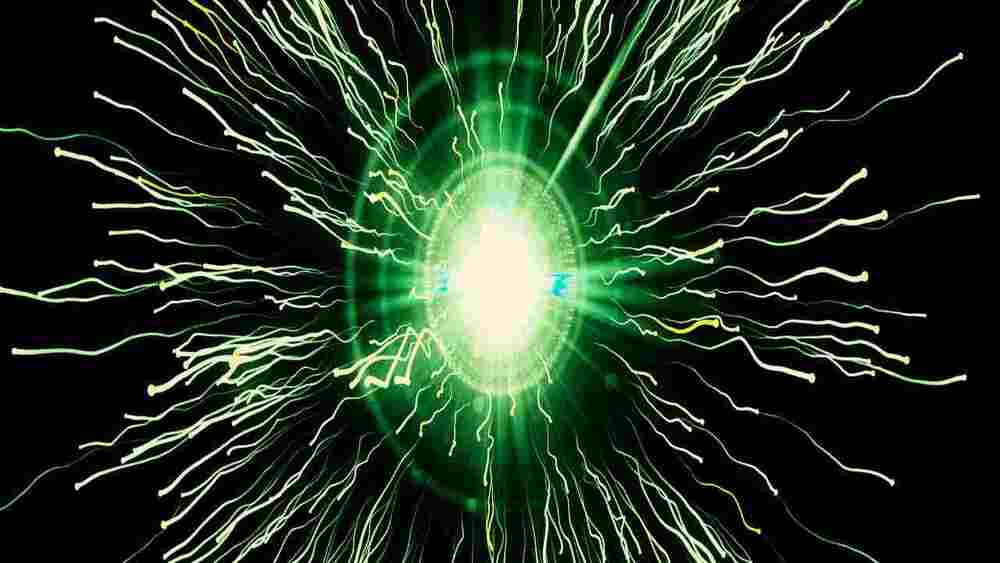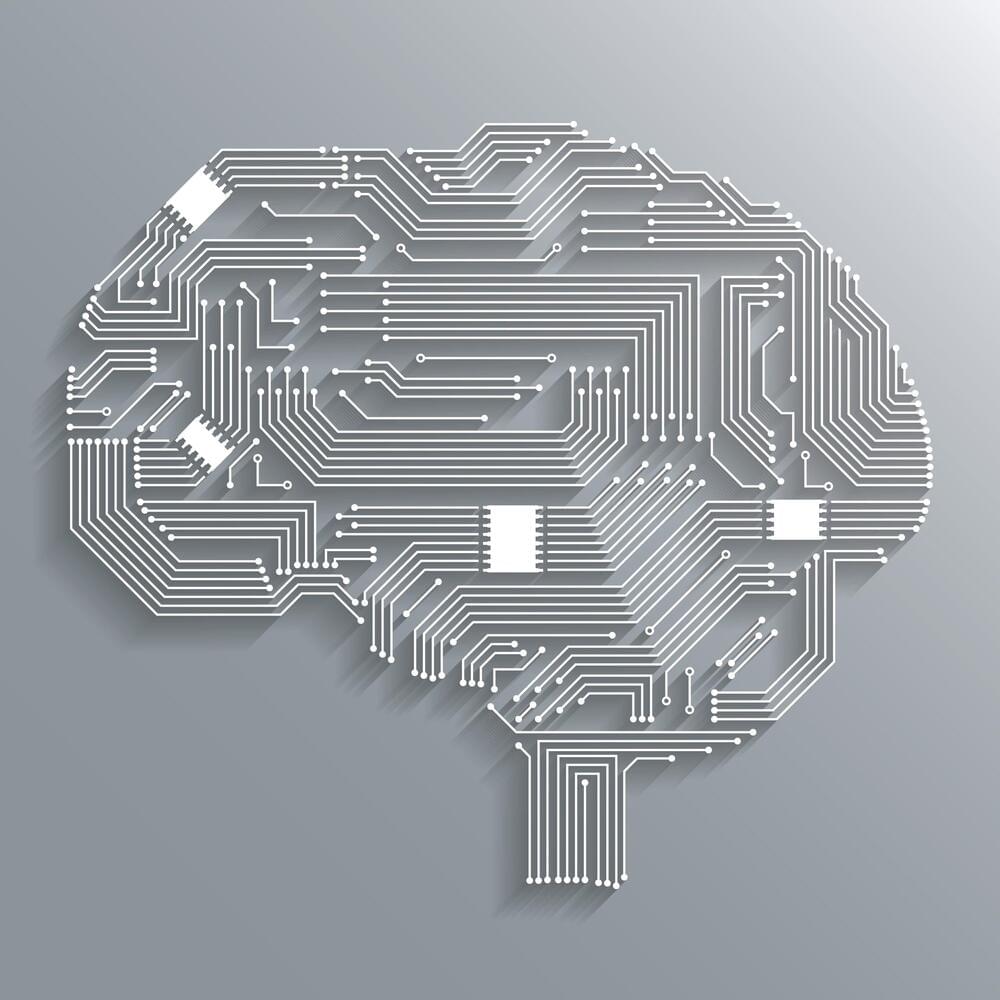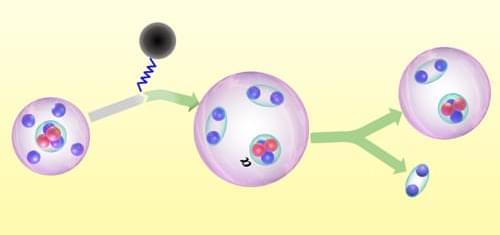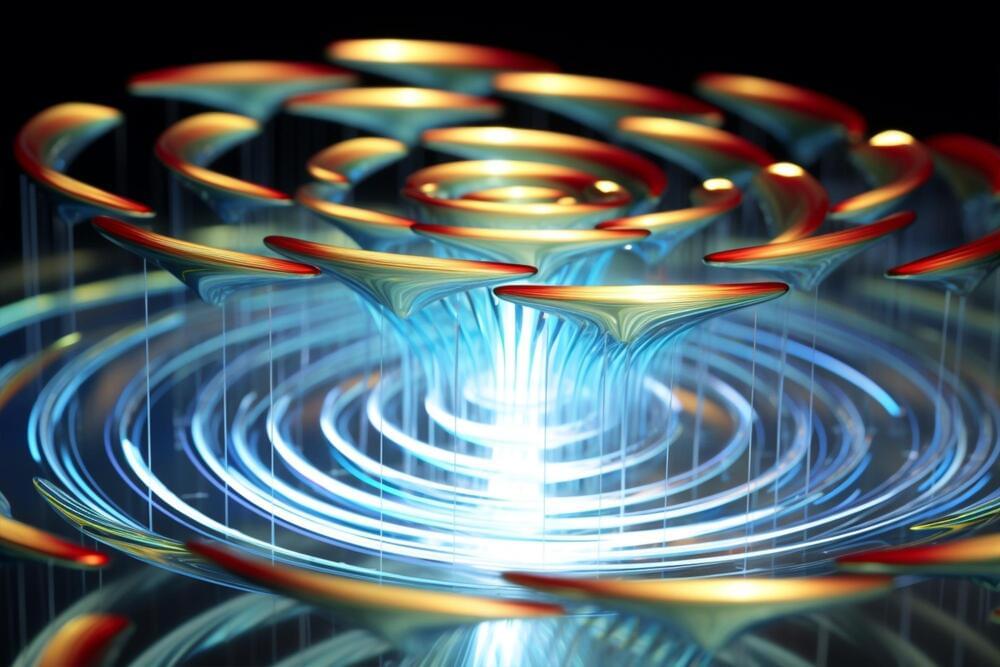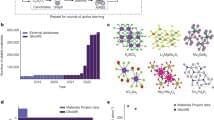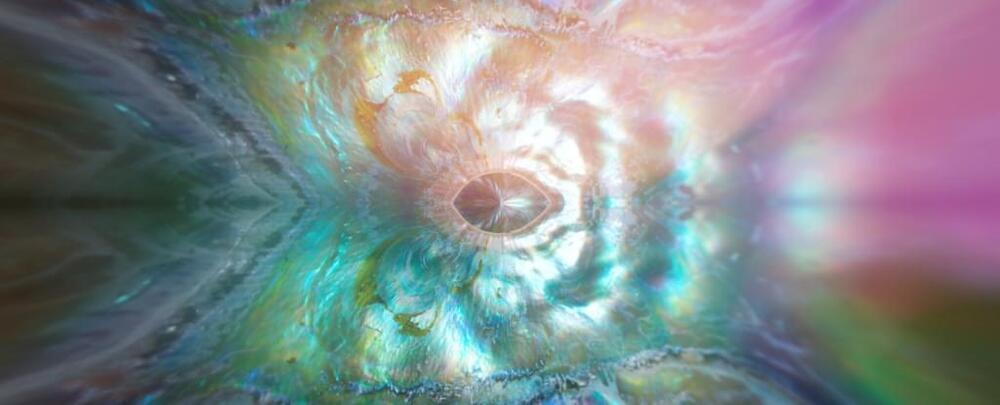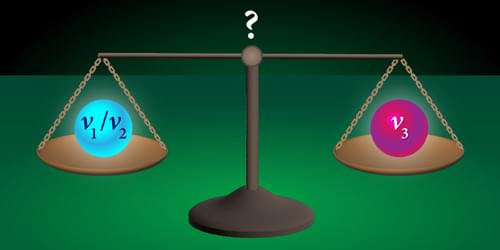The CMS experiment has presented its first search for new physics using data from Run 3 of the Large Hadron Collider. The new study looks at the possibility of “dark photon” production in the decay of Higgs bosons in the detector.
Dark photons are exotic long-lived particles: “Long-lived” because they have an average lifetime of more than a tenth of a billionth of a second—a very long lifetime in terms of particles produced in the LHC—and “exotic” because they are not part of the standard model of particle physics.
The standard model is the leading theory of the fundamental building blocks of the universe, but many physics questions remain unanswered, and so searches for phenomena beyond the standard model continue. CMS’s new result defines more constrained limits on the parameters of the decay of Higgs bosons to dark photons, further narrowing down the area in which physicists can search for them.
